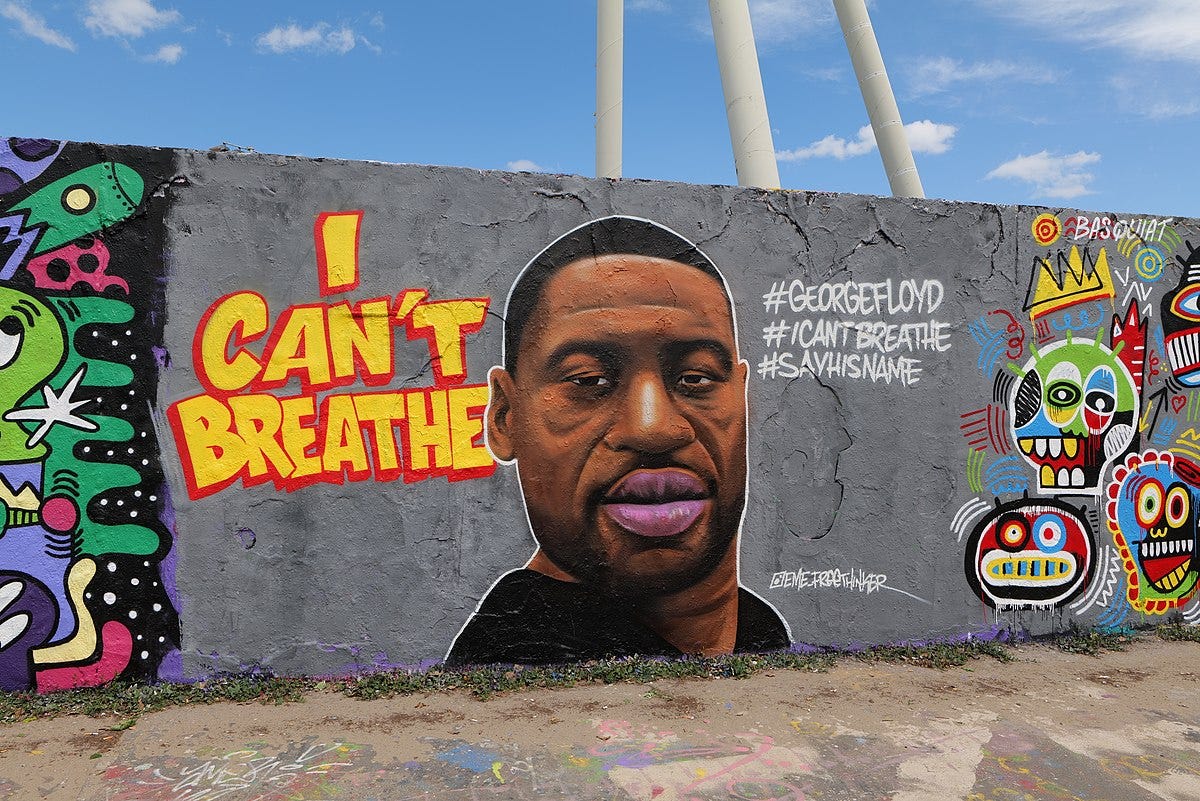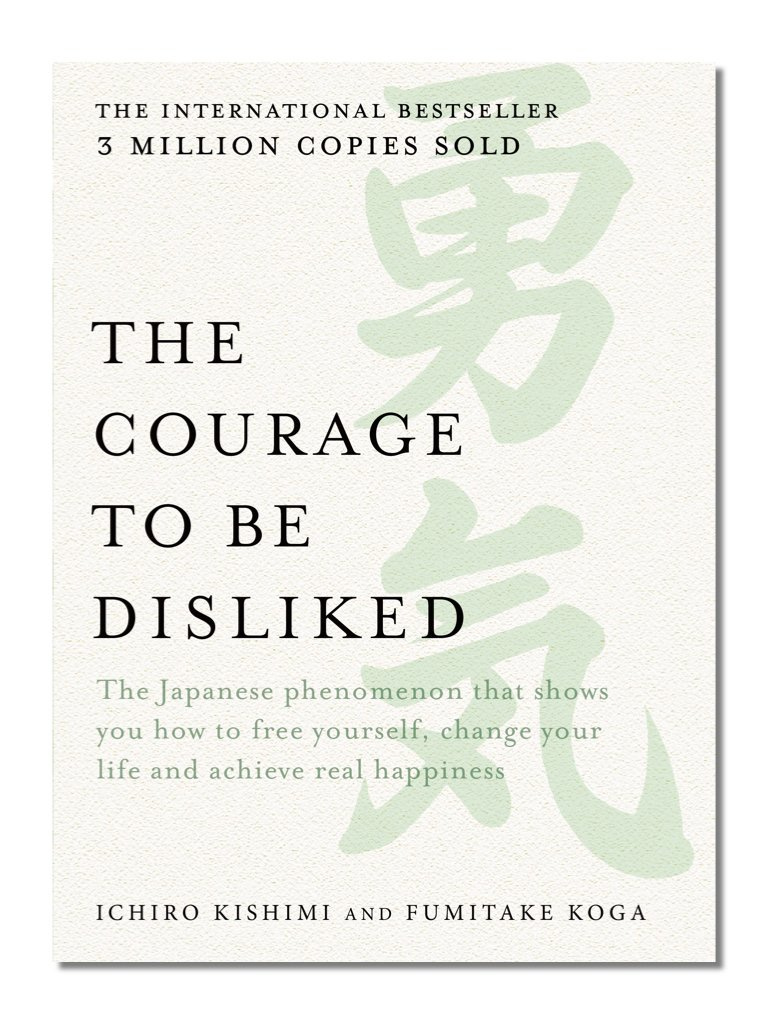The Weekly Hagakure #7
The Show Must Be Paused

Last week, I warned I would be breaking my rule of always sharing and writing about “timeless, evergreen content”.
I wish this week’s topic wasn’t timeless. I wish I had no reason to write about it. I wish it wasn’t the root cause of untold human suffering. I wish bigotry wasn’t a thing. I wish a species capable of incredible things would understand that we are all made from the same cloth. That we all have hopes and dreams and anxieties and good days and bad days. That we are all human.
That’s wishful thinking and it absolutely sucks that it is so.
I lived the first thirty years of my life between two cities in Portugal where almost everyone is white and looks the same. Because I’m blessed with having great parents, I never felt anyone should be different because of the colour of their skin, their religion, or their sexual orientation. So, to me, there was no issue.
And that’s the issue.
As the late David Foster Wallace famously said in his 2005 commencement speech:
There are these two young fish swimming along, and they happen to meet an older fish swimming the other way, who nods at them and says, “Morning, boys, how's the water?” And the two young fish swim on for a bit, and then eventually one of them looks over at the other and goes, “What the hell is water?”
I moved to Berlin five years ago. Suddenly, I could see the “water”. But I could also see how ill-prepared I was to even understand all sorts of discrimination issues. That was my biggest realization: a privileged white person, as I am, will never fully understand what racism is, will never fully understand what prejudice is.
Those who think they do are fooling themselves and adding to the problem.
My instinctive reaction has been to remain silent. Observing, feeling bad whenever another bad episode surfaced on the news cycle. But silent. I was afraid of saying the wrong thing, for lack of understanding.
After the death of George Floyd in Minneapolis on May 25, something broke. Not just out there, particularly across the streets and communities in the US, but also in me. I can’t watch a human being gasping for air and literally dying under the knee of an evil individual, and be silent.
I can’t be silent anymore. Being silent is being complicit.
I’m no longer afraid of making mistakes because the issue is a) too important and b) not about me and c) I believe my heart is in the right place. And it’s not about my voice being heard, anyway, but about creating the conditions for others’ voices to be heard.
This show cannot go on.
I don’t believe in changing others, but in changing ourselves. We can get educated. We can develop our spirit and our mind to the point where helping others is the endgame, not a stepping stone. Giving, more than taking. Upholding justice and equal opportunity as more than “nice-to-haves”. And that’s how we change the world, one action at a time.

( Illustration by Jane Mount )
If there’s any hope of lasting change, it needs to indeed come through actions, not only words. With this in mind, I am committing to the following:
Educate myself on the issue of race, inequality, injustice, and lack of inclusivity. I have seen a lot of great resources recently being shared, such as this, this, this and this, which I intend to learn from.
As I plan my next career step, I am making it a point to join an organization with the right values and a true willingness to contribute positively on this issue. This means real diversity in senior leadership and board of directors — or clear action (not just nice words) being taken to get there.
Once starting to serve on my next role, deploy a concrete strategy to build a diverse and inclusive team — broadcasting those values loudly to the outside — and creating a culture of leadership on top of it. We took steps in the right direction in my last company, but I must do a lot more.
I am doubling down on my pledge to offer free coaching and mentoring for underrepresented members of the tech community, extending this offer at least through the rest of 2020.
We are living in troubled times. But I am very hopeful about the long-term. The media distortion field may, as always, amplify all that is bad for shock value. But as we’re seeing these last few days, the Internet and social media have actually helped keep the momentum going. If, in absolute terms, there’s much more good than bad out there (and I believe there is), then globalization and visibility is ultimately a force for good. And the current protests in the US (most of them actually peaceful) are in fact leading to incredible displays of humanity and communion.
There’s so much to undo. But we have it in us to do the work. As one of the individuals in the video linked above says:
We don’t need this to be a one-day occasion. We need this to be something every day that people stand up amongst each other and make sure things happen.
Damn right, my brother. Let’s get to work. Together.
3 Articles
In light of the current events and my words above, this week I'm sharing three articles to help understanding and taking action.
✊🏾 How to Make this Moment the Turning Point for Real Change
"So the bottom line is this: if we want to bring about real change, then the choice isn’t between protest and politics. We have to do both. We have to mobilize to raise awareness, and we have to organize and cast our ballots to make sure that we elect candidates who will act on reform."
✊🏽 Op-Ed: Kareem Abdul-Jabbar: Don’t understand the protests? What you’re seeing is people pushed to the edge
"I don’t want to see stores looted or even buildings burn. But African Americans have been living in a burning building for many years, choking on the smoke as the flames burn closer and closer. Racism in America is like dust in the air. It seems invisible — even if you’re choking on it — until you let the sun in. Then you see it’s everywhere. As long as we keep shining that light, we have a chance of cleaning it wherever it lands. But we have to stay vigilant, because it’s always still in the air."
✊🏼Relentless empathy: When hate demands critical leadership
"What will make these efforts even more impactful is if each manager, leader, and coworker strives to increase self-awareness, practice conversations of empathy, strive for allyship, accept that we won’t be perfect, and know that our willingness to learn is the best compass we have to navigate through this together."
2 Podcasts
🎧 Annie Duke – Wanna Bet?
I have loved playing poker for years. It's a game of constant decision-making — just like life itself. In this podcast, former poker player Annie Duke wonderfully breaks down what a decision really is, what pitfalls our biases lead to, and what we can leverage to make more good decisions than bad.
🎧 Elizabeth Gilbert’s Creative Path: Saying No, Trusting Your Intuition, Index Cards, Integrity Checks, Grief, Awe, and Much More
Nowadays, I'm consciously trying to stray from my personal beaten path of podcast topics. At the end of the day, everything is about personal growth. This podcast episode is one such example. I did not know Elizabeth Gilbert but I'm glad I do now. It was fascinating to hear how she does research for her writing (and why she does it that way), her commentary on Marcus Aurelius' Meditations and a lot more, all enveloped in a soothing voice.
1 Book 📚
One of the most useful pieces of wisdom I have received is to face life as a “single-player game”. To be clear, this is not about individualism, or about isolating ourselves from others. Instead, it means profoundly internalizing (and acting upon) the idea that we only control ourselves and what we do. Strictly speaking, everything else we can’t control. We have hopes, wishes and desires but what others do or how the world behaves is ultimately not within our reach.
This is one of those things that we have no problem agreeing with, nodding our heads while thinking “of course”. But we are hardwired in ways that make us emotionally contradict what we rationally know to be true. How often do we get in anguish and frustration because something or someone didn’t behave the way we wanted? How often do we get hung up on what others think of us or about something we did?

While an easy read in teacher-student dialogue format, The Courage To Be Disliked is dense and thought-provoking. The title itself gives a sense of rebelliousness, a willingness to do what’s right, regardless. It reminds me of another book, “What Do You Care What Other People Think?”, by Richard Feynman, incidentally another brilliant rebel of history.
The main argument revolves around the idea that we are responsible for our actions, that (unlike Freud posited) our past is not a determinant of our future, and that all real problems are interpersonal problems. One concept that really resonated with me is that of “separation of tasks” — there are my tasks, and there are other people’s tasks. For example, giving thoughtful and candid feedback to a colleague of mine is my task. How she reacts, and what she does with it, that’s her task. I can’t control it, and I can’t do it for her. The more I try to, the unhappier I’ll likely get.
There’s a lot more to The Courage To Be Disliked and it’s quite hard to make justice to a book like this in a few words. But I found it extremely helpful in helping lead myself, which I find is a requirement to be able to successfully lead others. And it’s certainly something I’ll be re-reading regularly, as a reminder not to give power to the things I can’t control.
🙌🏽 Thank you for reading! I hope you enjoyed it, and until next week.
👉 You can follow me on Twitter @prla

